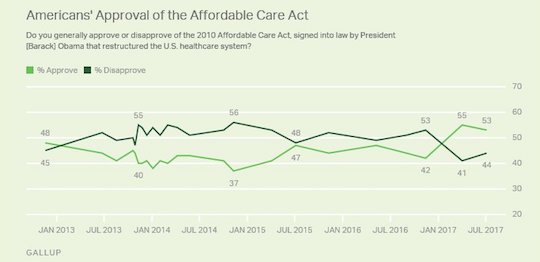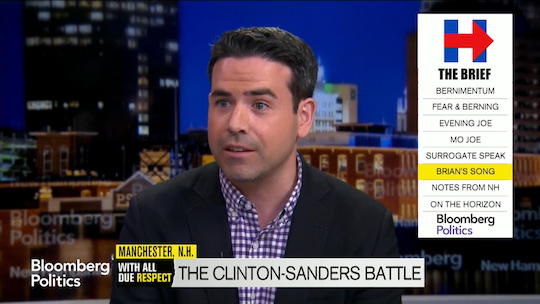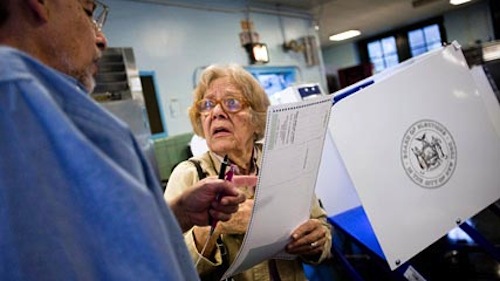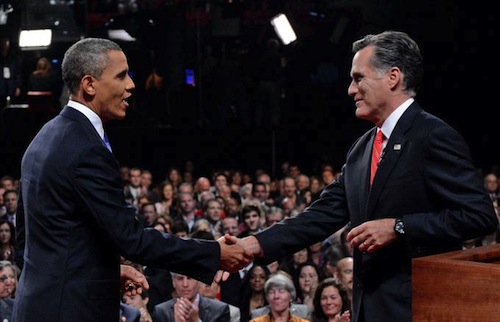Nick Gourevitch posted this remarkable line graph on Twitter. It shows the approval rating of the Affordable Care Act over time. Note that we are not asking people about “Obamacare,” which consistently polls worse even though they are the same thing. Don’t think about that, or you will lose faith in broad surveys of public opinion. Instead, look at how unpopular the Affordable Care Act is from pretty much the beginning of Obama’s second term—right up until about six months ago, when it jumps 13 points. As the G-man points out, that’s a big swing in our present climate of hardened opinions. I wonder what could have happened six months ago to make the ACA look so much better to people? If only there were some signal event. Two explanations for this jump leap to mind.
- Obamacare looks better when you start trying to replace it.
- Democrats are actively defending Obamacare for the first time in years.
I lean toward explanation (2). I have definitely noticed a marked decrease in people yelling about how bad Obamacare is, and that supports explanation (1). Now that the onus is on Republicans to develop a replacement, they are less interested in framing current law as a crisis. You will notice that the House of Representatives did not pass 30-some proposals that would replace Obamacare. They just kept voting to repeal it, because they knew that wouldn’t happen. Now that they control both houses and the Oval Office, they must replace. They are therefore less inclined to present the Affordable Care Act as a national emergency. I think this generally reduced demonization accounts for some of the swing, but the more influential factor is Democrats going out and actively defending the law.
When the CBO says millions of Americans would lose their insurance under the Senate health’s care plan, it implies that those people got insurance thanks to the ACA. We’re hearing about those CBO scores from Democratic activists. Meanwhile, the constant viral urgings to call our representatives in Congress also serves to remind us, regularly, that Obamacare did some good. This is the marketing campaign that’s been missing for the last five years. Obamacare went from mostly disliked to mostly liked in six months, because it finally got a full-throated defense. That’s frustrating if you look at it wrong, but it’s not so hard to make it heartening.





